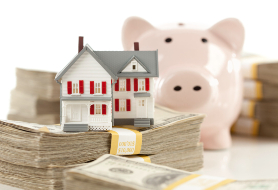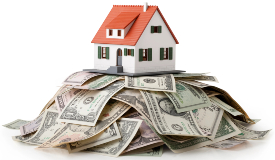If you do things right the first time around, you won’t have to spend years rebuilding your credit to a level that’s enticing to creditors, lenders, and other businesses. To help keep your credit score safe, here are 10 things that hurt your credit.
1. Paying late is probably the worst thing that could ever happen to your credit score. That’s because payment history has the biggest impact on your credit score. Make sure you send at least the minimum payment on time – ahead of time to be on the safe side.
2. Maxing out your credit cards. The second biggest factor influencing your credit score is your level of debt. If your credit card balances are too close to your credit limit, your credit score takes a plunge. Keep your balances below 30% of your credit limit.
3. Putting in too many applications. Keep your credit card and loan applications to a minimum. The more applications you put in, the lower your credit score will be. Lenders start to think you’re desperate for credit and that’s not an attractive quality of a borrower.
4. Closing credit cards with balances. When you close out a credit card with a balance, that balance is still reported to the credit bureaus. Your credit limit, however, is now reported as $0, and you’ve just maxed out your credit card.
5. Skipping out on the rent. Just because your landlord doesn’t regularly report to the credit bureaus that doesn’t mean he or she won’t tell on you when you don’t meet your obligations. If you stop paying your rent, expect your landlord to report it to the credit bureaus.
6. Unpaid medical bills. Who knew that being sick could affect your credit? If you fail to pay your medical bills, they can end up in the hands of a debt collector and on your credit report.
7. Being a new borrower. The age of your credit history influences your credit score. If you’ve just started out with credit, you’ll naturally have a lower credit score. Just be smart with your credit usage and you’ll see your credit score rise over time.
8. Closing old credit cards. Anytime you close a credit card you’ve had for a long time, your credit score could take a hit. That’s because that card is taken out of the equation for calculating the length of your credit history. So, leave your really old credit cards open and use them periodically, even if you don’t like the terms.
9. Paying less than the minimum. Many people don’t realize that making less than the minimum payment qualifies as a late payment. If you can’t afford your minimum payment, contact your credit card issuer to make other arrangements. Don’t wait until your due date. Call early.
10. Filing bankruptcy will damage your credit score and remain on your credit report for up to 10 years. Before you file bankruptcy, make sure you absolutely cannot repay your credit cards no matter how hard you try. Your credit score is an important number. Making the right decisions about all your bills will help ensure you have a good credit score when you need to get a credit card or apply for a job.…
 An unsecured personal loan is one which does not use any of your assets as collateral. Most credit card loans, for example, are a form of unsecured debt. While unsecured personal loans can be a good option, especially if you don’t have any assets to use as collateral, they can also hurt your long-term financial health in a few ways.
An unsecured personal loan is one which does not use any of your assets as collateral. Most credit card loans, for example, are a form of unsecured debt. While unsecured personal loans can be a good option, especially if you don’t have any assets to use as collateral, they can also hurt your long-term financial health in a few ways. If you need to borrow money, you have
If you need to borrow money, you have  Credit repair can seem like a daunting task. If you have lots of payday loans, personal loan debts, student loans, credit cards, and other debts to repay you may owe tens of thousands of dollars and it may take you years to repay all your loans. However, you don’t have to wait years to start improving your credit score. There are things you can do right now to start boosting your credit score:
Credit repair can seem like a daunting task. If you have lots of payday loans, personal loan debts, student loans, credit cards, and other debts to repay you may owe tens of thousands of dollars and it may take you years to repay all your loans. However, you don’t have to wait years to start improving your credit score. There are things you can do right now to start boosting your credit score: Many people are interested in investing in stocks or other assets, but they face a problem: to invest, they need money. Real estate is exciting as an investment opportunity because it allows you to invest with no money down. If you have perfect credit and a home with some equity, you may be able to get a second mortgage to buy a new property. You can often buy this second property with no money down.
Many people are interested in investing in stocks or other assets, but they face a problem: to invest, they need money. Real estate is exciting as an investment opportunity because it allows you to invest with no money down. If you have perfect credit and a home with some equity, you may be able to get a second mortgage to buy a new property. You can often buy this second property with no money down.